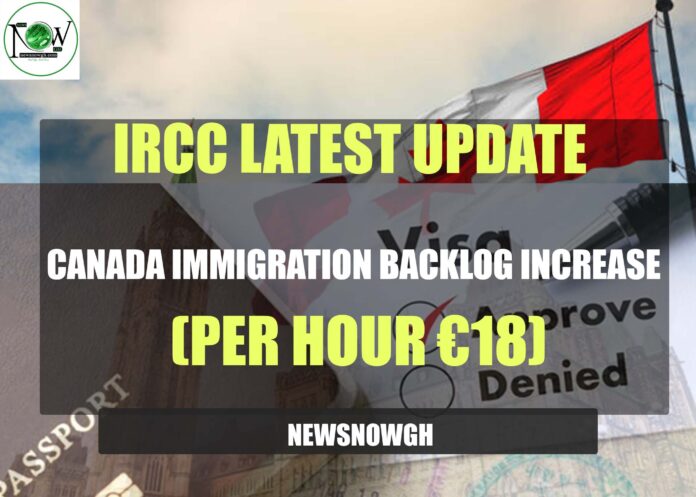Canada Immigration Backlog Increase – IRCC Latest Update: Canada Immigration 2025 Reduce
Over the past few months, the backlog at Immigration, Refugees, and Citizenship Canada has been gradually growing. According to the most recent statistics, which were made public on November 4, as of September 30, 2024, there were 1,097,000 applications in the backlog. That is a 1.73% increase over the prior month.
By August 31, the backlog had grown to 1,078,300 applications; by July 31, it had grown to 1,002,400 applications. The July backlog was already noteworthy because it reached over a million for the first time in months. Additionally, the data indicates that 1,353,600 of the 2,450,600 applications in the current inventory are processed following service criteria.
Even while the backlog is still growing, more than 1,342,500 applications were handled in August, indicating an improvement of 0.83% by IRCC.
Making a Backlog Definition
If an application has not been processed per the IRCC’s published service standards, it is said to be in the backlog. Depending on the pathway and the particulars of the application, these guidelines reflect the processing times that the IRCC deems appropriate for each kind of application. Within six months of receiving a full application, for example, the IRCC aims to process the majority of Express Entry applicants.
According to the department, processing 80% of its applications within service standards is its goal. However, according to the IRCC, this objective might not be accomplished if there are more applications than there are spots available, and processing times for some categories might lengthen.
Permanent Resident (PR) Applications
The IRCC has 816,000 applications for permanent residency in its database as of September 24. 510,800 (63%) of these were processed per service requirements. 305,200 of the remaining were regarded as backlog. This covers Express Entry programs, Provincial Nominee Program (PNP) streams that are associated with Express Entry, and family sponsorship schemes for partners, spouses, and kids.
The IRCC reports that 17% of Express Entry applications were deemed backlogged, which is more than its expected backlog of 15% but less than its planned backlog of 20%. A somewhat greater backlog was indicated by the Express Entry-aligned PNP of 23% compared to the predicted 20%. Lastly, there was a 15% backlog of applications for spouses, partners, and children (except in Quebec), which is comparable to the anticipated backlog.
Temporary Residence Applications
On the other hand, for the past few months, the percentage of applications for temporary resident status that are backlogged has been sharply rising. Only 658,000 of the 1,411,700 applications were handled per service requirements. This results in a 72% backlog of temporary resident applications, which is a significant increase from the 49% backlog in July.
Study permits had a 36% backlog, whereas work permits had a 47% backlog, broken down by program.
Citizenship Grant
The backlog of citizenship applications is the only one that has stayed consistent within the desired percentage since November 2023. The percentage is still the same as it was in August (17%) as of September 24.
How is the Backlog Being Reduced by IRCC?
Following the release of the Immigration Levels Plan on October 24, which announced a drop in targets for admissions of permanent residents for the next three years, this is the first change to processing timelines.
The fact that this Immigration Levels Plan is the first to set goals for admissions of temporary residents in the years to come makes it significant as well. Lower goals could aid the IRCC in clearing the backlog of applications for temporary residents.
The Study Permit Pilot Project, which would expedite the process of requesting court review in cases of denied study permit applications, was also announced by Canada’s Federal Court in October. Applicants under this pilot can finish the entire process in less than five months, compared to the current 14–18 month processing time for court review.
Prioritizing applications from workers in key occupations and extending the validity of Post Graduation Work Permits for master’s degree graduates for two to three years are two further measures the IRCC claims it has done to lessen the backlog.
Follow us on Newsnowgh.com to stay updated on the latest information regarding work permits, visa application processes, paths to permanent residency, and visa-sponsored employment.


